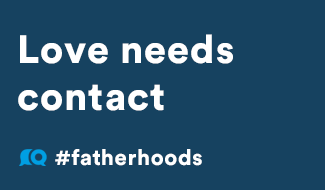My friends at Only Mums and Only Dads have asked me to offer some advice to parents who wish to change their children’s surnames after separating or getting divorced from the other parent. This advice also applies to people who find themselves in situations where the other parent wants a surname change.
What the law says
The starting point is to understand that a parent can only change the surname of a child under 16 with the written consent of other parents who share parental responsibility. Otherwise, the person wishing to make the surname change will need a court order called a Specific Issue Order. This is the same whether you are divorced or have separated from the other parent, as parental responsibility (providing you have it) is not lost on divorce or separation.
The starting point is to understand that a parent can only change the surname of a child under 16 with the written consent of other parents who share parental responsibility.
Remembering parental responsibility
Just who has parental responsibility? The mother of the child always has parental responsibility. A father who subsequently marries the mother will obtain parental responsibility – even if they are not registered as the child’s father on the birth certificate. Speaking of birth certificates, if you are named as a parent on the birth certificate for a child whose birth was registered after 1 December 2003, then you will also have parental responsibility.
Some practical considerations
I always encourage parents who are thinking of changing their children’s surnames following a divorce or separation to put themselves in their children’s shoes. In the event that you can’t agree, this is exactly what a court will do. Some things to think about include:
- Will changing the child’s surname make him or her feel more or less secure? If the other parent is involved in the child’s life, then it could be said that this is a meaningful relationship and the bond they share may be diminished if the child’s surname was to be changed.
- The greater the attachment of the child to the other parent, the more careful one has to be when considering a change in surname. Even if the child doesn’t see the other parent, they may spend time with their extended family, so there may be a link which will be affected by a surname change.
- If you are still on amicable terms with the other parent, a surname change could potentially have a negative impact on this relationship.
- If you are thinking of changing the surname to that of your new partner, consider whether it is too soon for the child. If this is a relatively new relationship it may be rather premature to change the child’s surname to theirs.
- The age of the child is relevant. The older a child is, the greater his or her desire to be known by a certain surname is going to be.
- The length of time a child has been known by a particular name is also a key consideration. Will it be confusing for them if they are to now be known by a different surname?
- Conversely, I work with many male and female victims of domestic violence. In such a case, a surname change may actually be a necessity to give protection from a violent parent, particularly in this day and age where people can be traced more easily online and via social media.
The court process
If you have decided to change your child’s surname, how do you go about it? If you are able to do so, (and from my experience, it is not always possible), you should first try to obtain the written permission of the other parent.
Explain to them why it might be better for the child for their surname to change. This will encourage them to believe that you are thinking of the child rather than making it appear that you want to distance the child from the other parent. If you can’t approach them yourself, you may know a mutually trusted person who could do this on your behalf.
Whatever you do, do not ask the child. It is best to remove them from the situation, so they do not feel like they have to take sides. If you can reach an agreement with the other parent, then it may be possible to change the child’s surname by deed poll.
However, if an agreement can’t be reached, you will need to apply to court for the aforementioned Specific Issue Order authorizing the change in surname. You may need to have attempted mediation beforehand.
The key consideration of the court will be whether a change of surname is in the child’s best interests, both in the short and long term. The court will deliberate on whether the surname change is likely to affect the child negatively, such as causing emotional harm from any confusion about his or her identity.
A change of surname might be the right thing for your children, but it is worth being as sure as you can be before starting the process.
Additional Reading/Resources
If you are facing court alone many people have found Lucy Reed’s book, ‘Family Court Without A Lawyer’ particularly useful.
You may also find our page on How To Tell Your Children You Are Divorcing – Recommended Books useful.
The Handover Book by Ashley Palmer is a unique and simple communication book for separated families. It will allow them both to always be aware of what is happening in their children’s busy lives as they go from one household to another. It’s a way of communicating the important things they both need to know about their children, while keeping your relationship as parents friendly and calm.
Charlotte Friedman has written Breaking Upwards – How To Manage The Emotional Impact Of Separation. Charlotte offers calm, therapeutic advice on everything from how to manage loneliness to letting go of grievance, and draws on illuminating case studies to answer questions such as: How long before I get over this divorce? How do I tell the children? How do I cope with the new partner in my ex’s life?
Posted on July 19, 2019














